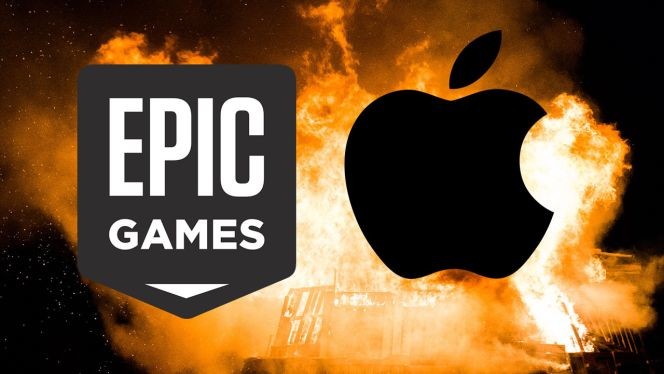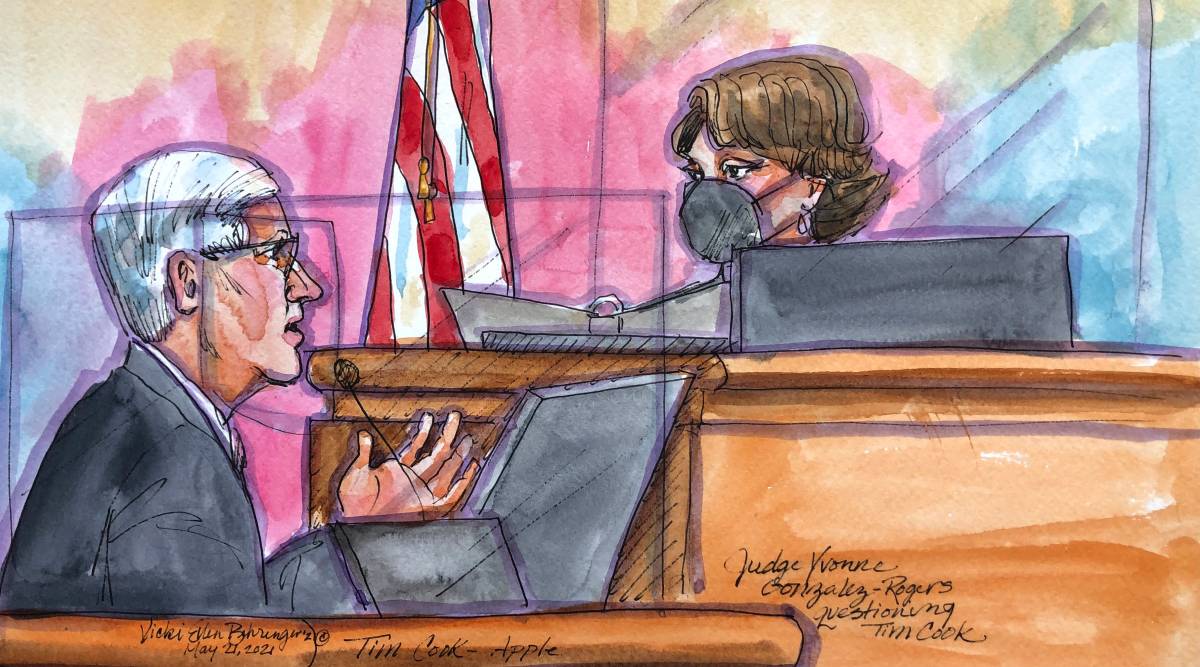


"Indeed, in strategizing on the development of the App Store and Apple's gaming business, Apple noted that it 'need to primarily consider how service would impact engagement and spend of this 6%,'" the judge wrote. Nor is the spending evenly spread: Just 6% of people who spent any money on games in 2017 accounted for a massive 88% of all game billings that year. Gonzalez Rogers noted that a majority of the App Store's revenue comes from games: in 2016, 81% of all billings were for mobile game transactions, while in 2017, 76% of all App Store revenue came from gaming. Knocking down Apple's anti-steering provisions could have a large effect on the overall App Store economy. We will fight on." "Primarily a game store" "Epic is fighting for fair competition among in-app payment methods and app stores for a billion consumers."įortnite is staying off iOS for now, Sweeney added, saying the game "will return to the iOS App Store when and where Epic can offer in-app payment in fair competition with Apple in-app payment, passing along the savings to consumers.
#Apple vs epic series#
"Today's ruling isn't a win for developers or for consumers," he said in a series of tweets.

jobs, and where the rules apply equally to everyone."Įpic CEO Tim Sweeney was less satisfied. "We remain committed to ensuring the App Store is a safe and trusted marketplace that supports a thriving developer community and more than 2.1 million U.S. As the Court recognized 'success is not illegal.' Apple faces rigorous competition in every segment in which we do business, and we believe customers and developers choose us because our products and services are the best in the world," the company told Protocol. "Today the Court has affirmed what we've known all along: the App Store is not in violation of antitrust law. "When coupled with Apple's incipient antitrust violations, these anti-steering provisions are anticompetitive and a nationwide remedy to eliminate those provisions is warranted."Īpple issued a statement expressing overall satisfaction with the ruling, though the company has not yet said if it will appeal. "Apple's anti-steering provisions hide critical information from consumers and illegally stifle consumer choice," she wrote.
#Apple vs epic trial#
Nonetheless, Gonzalez Rogers concluded, Apple's steering rules - which she repeatedly criticized during the trial - were a problem and should be blocked. "Given the trial record, the Court cannot ultimately conclude that Apple is a monopolist under either federal or state antitrust laws," she wrote. The case should be focused on the market for transactions in mobile games, she reasoned, a $100 billion industry that accounts for the majority of the App Store revenue.īecause neither side offered enough evidence about that specific market, such as barriers to entry or the alleged effect of Apple's "considerable market share," Gonzalez Rogers said she couldn't actually make a call whether the company's control of the App Store made it an illegal monopolist. Gonzalez Rogers said in her decision that both Epic and Apple had failed to determine the relevant market - a key first step in competition cases.
#Apple vs epic registration#
and its officers, agents, servants, employees, and any person in active concert or participation with them ("Apple"), are hereby permanently restrained and enjoined from prohibiting developers from (i) including in their apps and their metadata buttons, external links, or other calls to action that direct customers to purchasing mechanisms, in addition to In-App Purchasing and (ii) communicating with customers through points of contact obtained voluntarily from customers through account registration within the app," the ruling reads. District Court for the Northern District of California, issued her verdict after more than three months of deliberation following a month-long trial that took place in Oakland this past May. The ruling marks an end to a high-profile legal battle that started more than a year ago and has become one of the most explosive and consequential technology antitrust cases in recent memory. In a decision filed Friday morning, Judge Yvonne Gonzalez Rogers ruled Epic Games failed to prove Apple holds an illegal monopoly over its app ecosystem, but that its so-called anti-steering provisions - its rules preventing developers from directing customers outside the App Store - are anticompetitive and must be changed. The verdict sees Apple come out largely unscathed - but with one of its central App Store policies deemed illegal.


 0 kommentar(er)
0 kommentar(er)
